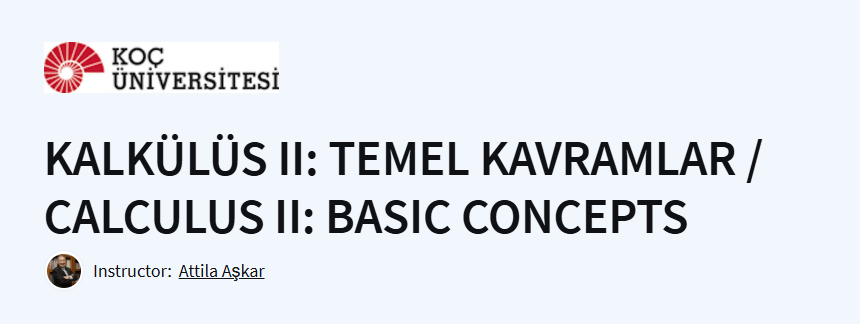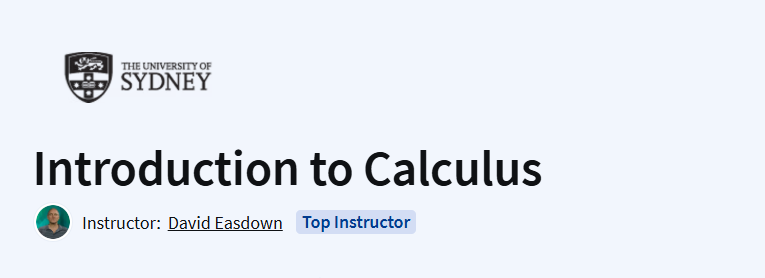What you will learn in Differential Equations for Engineers Course
Solve separable and linear first-order differential equations and apply them to real-world problems.
Analyze homogeneous and inhomogeneous second-order differential equations, including resonance phenomena.
Utilize the Laplace transform and series methods to solve linear ordinary differential equations.
Model and solve systems of linear differential equations using matrix methods.
Understand the basics of partial differential equations and their applications.
Program Overview
First-Order Differential Equations
⏳ 4 hours
- Introduction to differential equations, classification, Euler method, and analytical solutions for separable and linear first-order equations.
- Applications include compound interest, terminal velocity, and RC circuits.
Homogeneous Linear Differential Equations
⏳ 4 hours
- Second-order linear differential equations with constant coefficients, superposition principle, Wronskian, and characteristic equations.
Inhomogeneous Linear Differential Equations
⏳ 4 hours
- Solving non-homogeneous equations using undetermined coefficients and variation of parameters. Applications include RLC circuits, mass-spring systems, and pendulums.
The Laplace Transform and Series Solution Methods
⏳ 4 hours
- Introduction to the Laplace transform for solving ODEs with discontinuous or impulsive forcing functions. Series solutions for linear ODEs.
Systems of Differential Equations
⏳ 4 hours
- Solving coupled systems of first-order linear differential equations using matrix methods and eigenvalue problems. Applications include coupled harmonic oscillators.
Partial Differential Equations
⏳ 4 hours
- Introduction to partial differential equations, classification, and basic solution techniques.
Get certificate
Job Outlook
Enhances mathematical proficiency for careers in engineering, data science, and computational modeling.
Provides a solid foundation for advanced studies in mathematical theory and analysis.
Completing this course can bolster qualifications for roles requiring strong analytical and problem-solving skills.
Specification: Differential Equations for Engineers
|
FAQs
- Differential equations model real-world engineering phenomena such as heat transfer, vibrations, fluid flow, and electrical circuits.
- They provide tools to predict system behavior over time, including dynamic systems in mechanical, electrical, and civil engineering.
- Help in understanding stability, oscillations, and transient responses in engineering systems.
- Strengthen analytical thinking and problem-solving skills critical for designing and optimizing engineering solutions.
- Enable engineers to bridge theoretical concepts with practical applications in simulations, research, and real-world projects.
- A solid understanding of basic calculus, including derivatives and integrals, is highly recommended.
- Knowledge of functions, limits, and partial derivatives will help in understanding solution techniques.
- Prior exposure to linear algebra can be useful for solving systems of differential equations.
- The course gradually builds on these foundational concepts to teach ordinary and partial differential equations.
- Students with weaker math backgrounds may need to review calculus to fully benefit from the course.
- Model mechanical vibrations, electrical circuits, thermal systems, and chemical reactions.
- Solve problems involving fluid dynamics, wave propagation, and heat conduction.
- Help engineers predict system behavior, design control systems, and optimize performance.
- Provide frameworks for simulation, analysis, and troubleshooting of complex engineering systems.
- Enable engineers to convert physical phenomena into mathematical models for precise analysis.
- Basic ordinary and linear differential equations can be solved analytically with pen-and-paper methods.
- Manual calculations help reinforce the understanding of solution techniques and concepts like initial and boundary conditions.
- Software tools like MATLAB, Python, and Mathematica are helpful for complex, non-linear, or large-scale systems.
- Combining manual and software-based approaches prepares students for academic, research, and professional challenges.
- Practical engineering applications often require both theoretical understanding and computational efficiency.
- Essential for subjects like control systems, signal processing, vibrations, and fluid mechanics.
- Helps solve numerical, analytical, and conceptual problems in competitive exams.
- Improves logical reasoning and problem-solving skills required in GATE, ESE, and university tests.
- Provides practice with step-by-step techniques for first-order, second-order, and higher-order differential equations.
- Builds a strong foundation for advanced courses in engineering, applied sciences, and research projects.





